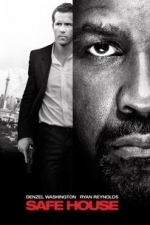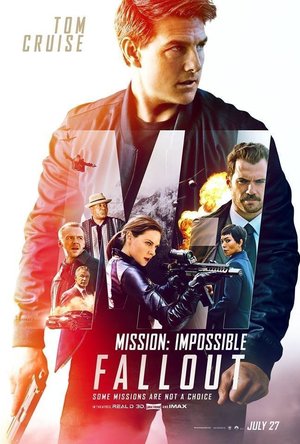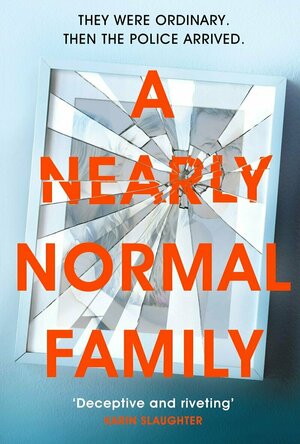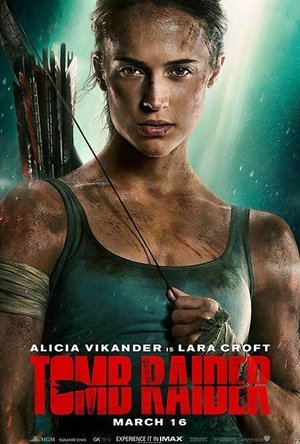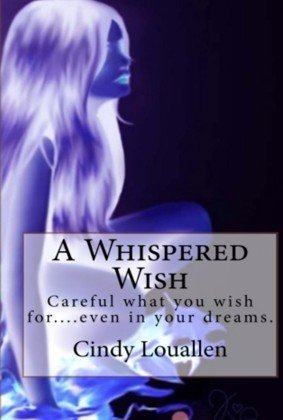Gareth von Kallenbach (980 KP) rated Safe House (2012) in Movies
Aug 7, 2019
In the new action thriller “Safe House”, Reynolds eschews his typical charming, cocky, wisecracking on-screen personas to portray Matt as a mature young man with ambitions both inside and outside of his job. Matt longs to be assigned to a more glamorous position and is hopeful that when his 12 month tour in South Africa is up, a more exciting post awaits him in Paris. It doesn’t hurt that a Paris post will also allow him to be closer to his girlfriend when she returns to Europe in the near future. But his boss David Barlow (Brendan Gleason) isn’t as optimistic.
As his frustrations at the lack of mobility grows, Matt soon finds his quiet world torn asunder by the arrival of Tobin Frost (Denzel Washington). Frost is a former agent who went rogue and is considered an extremely dangerous and high-profile target. Having eluded the CIA for years, he only draws even more suspicion when he surrenders himself to a US consulate in South Africa. The CIA knows they have to act fast to determine what Frost knows, and quickly whisk him away to a safe house for intense interrogation. But the CIA aren’t the only ones who want to know Tobin’s secrets.
Although Matt is highly trained for his job running the safe house, he is very green when it comes to the reality of having to defend his domain against a surprise attack which leaves Tobin and Matt as the only survivors. Forced to flee and with nowhere to turn, Frost tries to convince Matt that they have been set up because someone in the agency does not want Frost to talk. At first skeptical, Matt is forced to step outside of his comfort zones and confront a deadly array of assassins as well as the threat posed by Frost himself and the unseen elements working against them. In a frantic race, Matt must keep Frost and himself alive as they attempt to reach safety and get to the truth behind the deadly game in which they’ve been cast.
Washington and Reynolds worked very well together and had a very natural, unforced chemistry. It was very nice to see Reynolds take on a grittier and more intense role than we have seen from him previously. Washington is a true artist at playing taciturn and wiley, and no one else can portray the pain and shock of being shot as subtly or as convincingly as Washington with just a simple change of expression.
That being said, the film had a number of issues. First and foremost, plot holes that you could drive a truck through and gaps in logic that really require the audience to take some serious leaps of faith. While there was some intense action, it was difficult to appreciate when it looked like the camera was being kicked around the floor during fight scenes, giving the film a very jerky quality. The film also suffered from some pacing issues with parts of the movie dragging as it worked toward an extremely predictable conclusion, one that I figured out very early into the film. There is some fine supporting work in the movie, particularly that of Gleeson and Arnezeder, as well as Ruben Blades as an old cohort of Frost’s, but it is not enough to help the film live up to its intriguing premise.
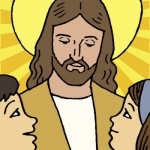
Children's Bible Daily Prayers for Family & School
Book and Reference
App
Children's Prayer is an app for Christian families, teachers and catechists with kids of all ages....

PICKA - Dating, Meet, Chat
Dating, Lifestyle and Social Networking
App
PICKA! One of the best dating apps launched in 2017. A new, thrilling location based free dating...
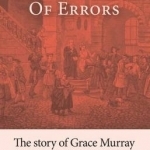
A Tragedy of Errors: The Story of Grace Murray the Woman Whom John Wesley Loved and Lost
Book
The story of John Wesley's affair with Grace Murray and how Charles Wesley prevented their marriage...

iMissal Catholic (Mass Reading, Calendar, Lectionary)
Reference and Lifestyle
App
With over 4,000 5-Star Reviews, we hope that you will agree that iMissal is the #1 Catholic App. ...
Bob Mann (459 KP) rated Mission: Impossible - Fallout (2018) in Movies
Sep 28, 2021
The film neatly follows on from Rogue Nation with arch terrorist-in-need-of-a-razor Solomon Lane (Sean Harris) being extraordinarily renditioned (probably not a valid phrase!) between multiple countries who want to torture/punish him. But his followers – “The Apostles” – are still active and on the trail of plutonium that could devestate key sites, with religious centres being the top of the target list. Since Ethan Hunt (Tom Cruise) originally caught Lane, IMF Director Hunley (Alec Baldwin) despatches Hunt to intercept the plutonium.
But CIA director Erica Sloan (Angela Bassett) has no faith in the IMF, or trust that the organisation has not been infiltrated, and she insists that her ‘heavy’ August Walker (Henry Cavill) goes along for the ride. But they are not the only parties in play, for Isla Faust (Rebecca Ferguson) is also involved. But who is she working for?
What makes these films a cut above your average action adventure is the stunt work, with the knowledge that Cruise is at the centre of the action. In “Skyscraper” you KNOW Dwayne Johnson is standing on the ‘edge’ in front of a big green screen. Similarly here you KNOW Cruise is standing on the edge of the Tate Modern tower – probably without a safety line – as the camera goes 360 degrees around him. This makes all the difference to the adrenalin count.
There are some outstanding set pieces in the film, with extraordinarily spectacular shots from a ‘halo jump’ and a dramatic helicopter finale. But it is some of the smaller stuff that really impresses: a dramatic edge-of-the-seat car and motorbike chase through central Paris is one of the most impressive and terrifying things I’ve seen on film for many years; and Cruise’s literally bone-crunching run through London is also extremely exciting, with Simon Pegg adding good humour in his regular role of Benji. By the way, series regulars Ving Rhames, as Luther, and Michelle Monaghan, as Hunt’s ex-wife Julia, also make welcome returns but Jeremy Renner is missing this time.
Tom Cruise at 56 (he’s just 15 months younger than I am, damn it!) will eventually meet a Roger Moore-like Bond cliff when his Hunt role is no longer credible. But he’s not there yet! Rebecca Ferguson is again outstanding as Faust and as a newcomer in a similar role Vanessa Kirby (memorable as Princess Margaret in “The Crown”) impresses as the “White Widow” – someone with a familial link to a villain from the past!
Unusually, for a film series which has traditionally been kept fresh by changing directors and composers at each turn, Christopher McQuarrie (“Edge of Tomorrow“, “The Mummy“) returns following “Rogue Nation“, and he also writes the screenplay. The composing baton is handed over this time though to Lorne Balfe (“Churchill“, “Terminator: Genisys“) and for me this was a bit of a step down from the “Rogue Nation” soundtrack by Joe Kraemer which I really enjoyed.
Is it sufficiently fresh though? Let’s be clear here, I was enormously entertained throughout, and this should be near the top of your summer watch list. But it did ultimately feel at times a little like a light retread of “Rogue Nation“. Some of the stunts – notably the Paris and London scenes as above – were a step up for me, but there are some annoyances in McQuarrie’s script (see the spoiler section below the trailer), so for me the rating plateaus at the same as “Rogue Nation“.
Haley Mathiot (9 KP) rated They Almost Always Come Home in Books
Apr 27, 2018
Genre: Christian Fiction
ISBN: 9781426702389
Rating: DNF, 3
Greg goes on a trip into the Canadian wilderness—and never comes home. But Libby was thinking about leaving him anyway… so should she care that he's missing? Should she find him? Libby sets off with her best friend and her step-dad on a journey to find Greg. But for Libby, the journey is more than to find her husband. It's a journey of faith.
They Almost Always Come Home had potential to be amazing. Maybe the ending was amazing… but I didn't get that far. The plot was great—there were a lot of different things woven together to make it complex. It was more than "husband is gone, wife isn't sure if she wants him back but she goes to find him anyway." There is a lot of complexity to the situation, and a lot of background to see how Libby got to where she is now. It was good, and I liked it. It didn't move fast enough for me, but it was still good and I liked it.
However, other aspects of the book took away from the story line, and the main one was the writing. I feel like I have more to say about the writing than anything when it comes to They Almost Always Come Home.
This book reads rather depressing. As I read it, I can hear the voice of the character in my head, feeling tired and broken and uncaring and bitter, and it's very emotionally demanding to read. Since the character is going through so much, I can understand why that is: that's how she feels, that's how you are supposed to feel. It certainly isn't a sit-by-the-beach-with-sweet-tea kind of book.
Also, occasionally (as in the case with every Meg Cabot book I've ever read) an individual has a great original idea for a novel. What they should have done, would be to find someone who could write well and let them write the story, and co-author it. But no, they insist on writing it themselves, even though they can't write. Sadly, this is the case with They Almost Always Come Home. In some cases the mediocrity of the writing doesn't take away from the enjoyment of the book, but in this case, it got to the point where it wore me out and aggravated me, and I had to put it down. After this happened several times, I never ended up picking it back up. The writing was made up of poor sentence structure, and the sentences that were actually sentences weren't organized very well. The interior monologue of Libby's thought-life was even less organized. Yes, I understand that our thoughts are not perfectly organized like Dostoevsky's dialogue, but Libby's mind was just hard to follow.
The other thing that took away from the book was the main character, Libby. I didn't like her. Maybe if I'd gotten to the end and seen her change (because I just know she's got to change—why else would Ruchti write a story like this?) then I 'd like her. But as it were, I was rooting for Greg. Poor Greg who was stuck with her for twenty-five years, and who got out easy (at least that's the way it looked from where I stopped). I know that isn't the way I'm supposed to feel, but I kept thinking "Libby… honestly…(mutters to herself)…" how can you read a book about a character that you don't like?
Again, this book had a lot of potential. Sadly I didn't enjoy it enough to finish it. I give it three-stars for the good pacing at the beginning, and the tangible emotions of the character (who I didn't like…?).
Check out amazon (as of today, 17 five-star reviews) and goodreads for reviews of They Almost Always Come Home. You will see that I am in the minority.
Heather Cranmer (2721 KP) rated A Nearly Normal Family in Books
May 14, 2019
The plot for A Nearly Normal Family is very intriguing indeed. Eighteen year old Stella becomes involved with an older man named Christopher. She's having the time of her life. When she learns more about her romantic interest, she's having a hard time believing the bad stuff is true. It's not long before Christopher is found murdered, and Stella is the main suspect. Told from the point of view from Stella's father, Stella, and Stella's mother, we learn what really happened that night, what led to all of this drama, and what happens afterwards. We also learn how far people will go to protect the ones they love. I found myself not wanting to guess what happened with this book. I wanted everything to be a complete surprise which it was. There are a few twists and turns throughout this novel which I did enjoy. I loved that this book tied up any loose ends by the end of the book, and nothing was left to speculation. I hate having to guess what happened after the main mystery has been solved, so I was thrilled when I had all my answers. I'm a stickler for closure!
The characters were all very well developed and fleshed out enough that they felt real. We are introduced to Adam, Stella's father, first. We see his relationship with his daughter, his wife, and with God since he's a pastor. He relies heavily on his faith to get him through things. He's an upstanding member of the community and very trustworthy. I found Adam to be the most interesting to read about. It was interesting to read about his response to his daughter being accused of murder. Next, we are introduced to Stella's point of view. Stella is accused of murdering her boyfriend, Christopher. She's eighteen and has a devil may care attitude when it comes to everything. Some points throughout the book, I felt she was innocent of the crime, but there were other times she seemed very guilty. I couldn't figure her out. It was interesting to read about what had happened throughout her young life to get to the predicament she was in. Finally, we learn the perspective from Ulrika, Stella's mother. I didn't think I would be able to connect with Ulrika right at first, but I found myself understanding her quickly. Ulrika is a criminal defense attorney, so it was interesting reading about her perspective on everything. I was happy that Ulrika didn't use legal jargon too often. Although we don't get to read things from her perspective, the character of Amina, Stella's best friend, was also intriguing. I loved reading about the girls' friendship throughout the years and how loyal they were to one another.
The pacing was spot on! Every time the story would change perspectives, I thought I'd get bored with the change of character, but I was sucked in right away same as before. I devoured page after page of A Nearly Normal Family. I couldn't wait to find out more and learn about motives and what would happen.
Trigger warnings include profanity, alcohol use, drug use, violence (not very graphic), rape (not very graphic, mentions of sex (not graphic), and murder.
Overall, A Nearly Normal Family is a very intriguing read that pulls you in from the very first page and doesn't let you go even after it ends. I would definitely recommend A Nearly Normal Family by M.T. Edvardsson to those aged 18+ who like to get lost in well written thrillers!
--
(A special thank you to the publisher for providing me with an ARC paperback of A Nearly Normal Family by M.T. Edvardsson in exchange for an honest and unbiased review.)
Movie Metropolis (309 KP) rated Tomb Raider (2018) in Movies
Jun 10, 2019
That’s all conjecture anyway as Vikander is the leading lady we have ended up with, for better or for worse. But is this Tomb Raider reboot the film to end that dreaded video game to movie curse and can Vikander take on the role that Angelina Jolie made so famous back in the early 00s? Read on to find out.
Lara Croft (Vikander) is the fiercely independent daughter of an eccentric adventurer (Dominic West) who vanished years earlier. Hoping to solve the mystery of her father’s disappearance, Croft embarks on a perilous journey to his last-known destination – a fabled tomb on a mythical island that might be somewhere off the coast of Japan. The stakes couldn’t be higher as Lara must rely on her sharp mind, blind faith and stubborn spirit to venture into the unknown.
Director Roar Uthaug, who only has a few Swedish movies to his name, directs a decent, if not outstanding adaptation of the famous character’s origins story that features some nifty action set-pieces intertwined with a hectic and often nausea-inducing filming style. It doesn’t break the video game to movie curse, but it’s a good shot.
Unfortunately, the cast is one of the film’s weakest points. Vikander is a whiny, self-absorbed brat for the majority of the runtime, only letting this insipid persona go in the latter half of the movie. This is through no fault of her own as her performance is as solid as we’ve come to expect from the actress, but the script really lets her down. The film starts off poorly with a messily edited boxing match giving way to a rather implausible bike chase that ends with Vikander face planting the bonnet of a police car. Thankfully, this is as bad as it gets.
From then on, the audience is treated to a selection of thrilling set-pieces, populated by some very good CGI indeed. It’s just unfortunate the characters lack any sort of presence whatsoever. Outside of Vikander’s insipid Lara, the rest of the cast are merely there to offer expositional dialogue. Dominic West in particular, who plays Lara’s father, spouts nothing but exposition, even narrating certain parts of the movie.
Apart from a couple of scenes involving Nick Frost as a greedy pawnbroker, Tomb Raider is devoid of any sense of fun whatsoever
Elsewhere, for a film called Tomb Raider, there’s very little tomb raiding to be had. In fact, it feels like a hybrid of Kong: Skull Island,The Mummy, Indiana Jones and The Hunger Games and for this reason it lacks a sense of identity and any originality whatsoever.
Cinematography wise, Tomb Raider is competent but not exceptional. The shot choices are limited and the action is sometimes messily edited to the point where it’s difficult to tell exactly what it is that’s going on. It avoids unnecessary shaky cam, which is a miracle in itself but it’s not the best the genre has to offer.
Unfortunately, director Roar Uthaug’s idea to go the complete opposite of many blockbusters nowadays results in a film that really doesn’t have a sense of humour. Apart from a couple of scenes involving Nick Frost as a greedy pawnbroker, Tomb Raider is devoid of any sense of fun whatsoever. It seems the scriptwriters missed the memo about the premise being absolutely ridiculous – a dose of humour would have done this tale a world of good.
Overall, Tomb Raider is a decent stab at resurrecting a character that Angelina Jolie performed so well over the course of her two films in the early 00s. Alicia Vikander plays a very different Lara Croft to Jolie and whilst she may need a couple more films for us to get acquainted with her, she’s off to a reasonable if unoriginal start. Whether or not she gets the chance to tomb raid again remains to be seen, it all depends on those box-office numbers.
https://moviemetropolis.net/2018/03/16/tomb-raider-review-contains-little-tomb-raiding/
Kara Skinner (332 KP) rated A Whispered Wish in Books
Jun 11, 2019
Can she become human again with the help of Prince Crispin, a handsome pixie? Or as feelings grow between them, will she even want to go back to her human life?
I decided to give A Whispered Wish a shot thanks to a ridiculous one-star review on Smashwords, written by someone who hadn’t read past the first two lines. But the novel was so cringeworthy, I almost sympathized with that asshole reviewer.
Just reading the novel was a toilsome task, thanks to the obvious typos and grammatical errors infecting the text, not to mention the random tense changes that yanked me out of the story every other page.
But even if I’d been able to be absorbed into the story, there wouldn’t have been anything to be absorbed into. Nothing freaking happens for two thirds of the book!
The beginning involves flimsy world-building and back story and preaching about how humans are horrible and they “can learn a thing or two from the pixies.” That line appears not once, but twice in a book meant to be read by adults, not five-year-olds.
This would be more tolerable if it was the pixies saying this to Zoe, who, as a human, defended herself and humankind. But instead, it was Zoe who instantly accepted that she and all other humans, including her friends and boyfriend, was hellspawn.
She accepts that humans are monsters about two minutes after realizing she turned into a pixie when she asks the other pixies if she can tell her human friends what’s happening.
“is there a way that we can let them know? Please? I can’t let them keep looking for me. They will be so worried,” tears still flowing. Only now, she can’t stop them.
Fionna pops up beside them, “I’m sorry Zoë, but we just can’t. To let them know that we exist is very dangerous for us.”
“You have to understand,” Brigid said, “they will exterminate us just to find out what makes us what we are.” Zoë knows they are right about this, anything new or something they didn’t understand as humans they dissected or destroyed.
A Whispered Wish, page 30
Are her friends effing Nazis? I can’t think of another reason for why she would have so little faith in them. I’m not saying they should tell the press, but maybe Zoe’s best friends and her motherfreaking boyfriend won’t kill her just because she sprouted wings and shrank to two inches.
Conflict doesn’t flare up until two thirds into the book, and even then, the conflict is more like brief sparks instead of a raging fire. There are a few action scenes, but the action was over so fast, I had to reread them to actually process them happening.
The main conflict between two pixie kingdoms feels more like an afterthought than an actual plotline.
All of a sudden, the pixies stop being this shining beacon of superiority and start being savage and warlike. Prince Crispin and his friends, who have never seen battle before, become expert fighters the second war is declared. It’s contrived and borderline absurd, but that’s fine because the final battle is over in like two pages.
Perhaps A Whispered Wish could have snatched a third star from me with the skin of its teeth if the characters had good chemistry, funny dialogue, or even an ounce of personality, but no.
All the men are strong, athletic, and ready to save the females while making sexist jokes about how women take forever shopping. The women are all kind, girly, and able to manipulate the men with their puppy eyes.
The two most interesting characters are the Queen of Devonshire, and Jaxxon, a defect from Pembrokeshire, and they only have a couple of scenes. Everyone else absurdly boring.
So, A Whispered Wish is a solid two-star read. With some heavy editing and revising, it could have been good, but as is, it’s less interesting than the average hospital waiting room. A Whispered Wish is free on Smashwords.
